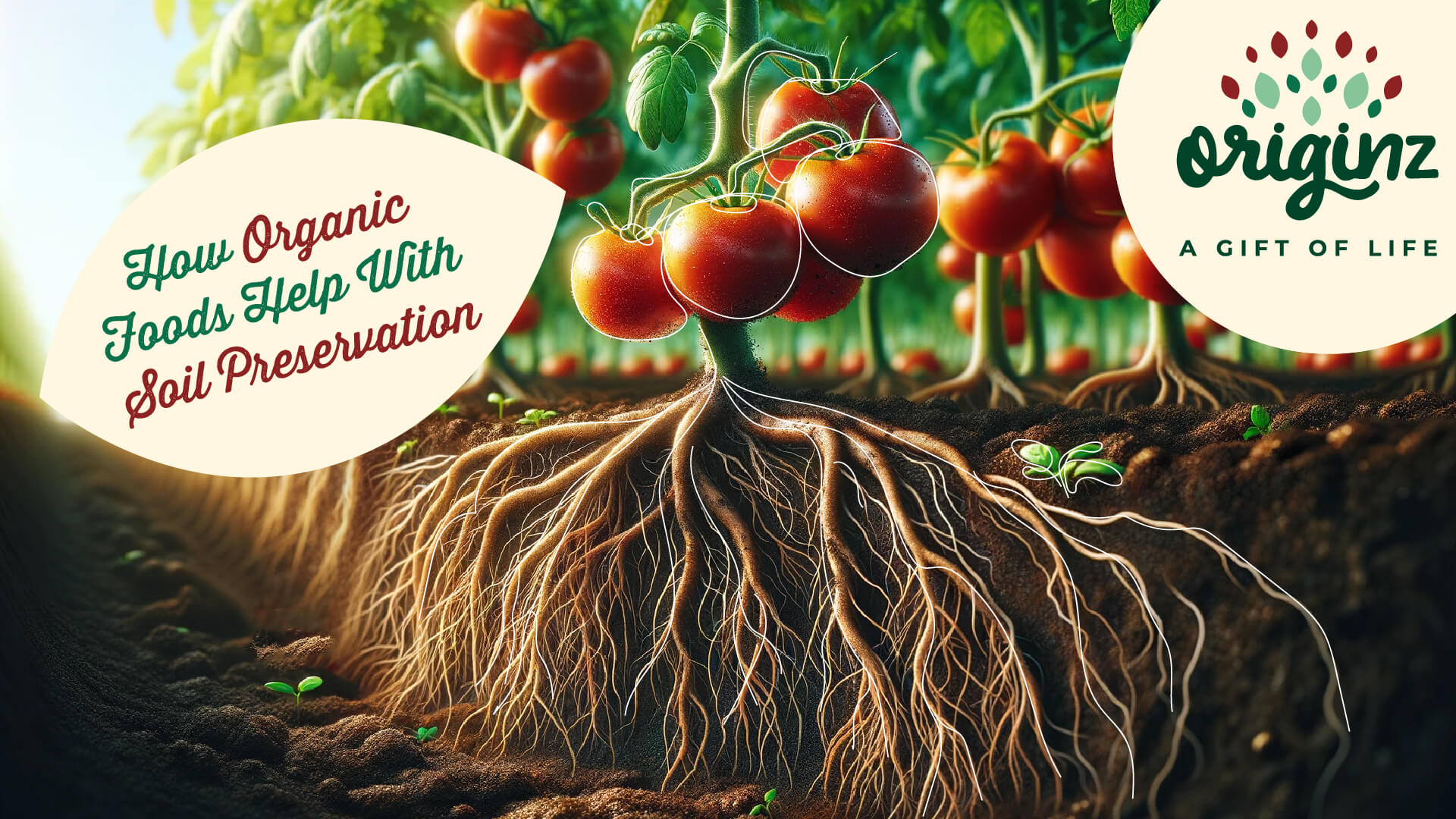
How Organic Foods Help With Soil Preservation
Organic foods have gained significant popularity in recent years due to their perceived health benefits and environmental impact. One of the key advantages of organic foods is their positive effect on soil preservation. This article aims to explore the connection between organic foods and soil preservation, the environmental impact of organic farming, the long-term benefits of soil preservation, and the challenges and solutions in organic farming.
Organic farming involves a holistic approach towards agriculture, working in harmony with nature to protect the health of soil, ecosystems, and people. This approach is reflected in the methods farmers use to keep their soil healthy and full of nutrients.
One of the key practices in organic farming is crop rotation, or alternating the crops that are cultivated on farmland. By rotating crops, organic farmers can break cycles of pests and diseases, reduce soil erosion, and enhance soil fertility. This method also helps to naturally replenish nutrients in the soil, reducing the need for synthetic fertilizers. Similar to crop rotation is the planting of cover crops, which help to bring nutrients into the soil naturally for cultivated plants to use for growing. Legumes like beans function particularly well as cover crops.
Composting is another essential aspect of organic farming. By taking waste material like food scraps and manure, farmers can create a natural fertiliser that helps plants grow and thrive. Compost keeps the soil rich and lessens the need for chemical fertilisers. It also improves the structure, water-holding capacity, and nutrient content of the soil. The gradual release of nutrients from compost ensures a steady supply for plants.
Another practice organic farmers use to keep their soil healthy is biological pest control. By encouraging natural predators of pests, like birds and wasps, as well as protecting creatures like worms that naturally enrich the soil, farmers can both improve their soil health and keep their plants pest-free without using chemical pesticides. This practice also means that organic farms have a lot more natural biodiversity than non-organic farms, which helps the environment in the long run.
The benefits of organic farming for soil don’t begin and end with nutritional benefits, though. Organic farming also keeps the structure of the soil strong so the land can be used by future generations.
Traditional agriculture practices, such as intensive tilling and monoculture, often lead to soil erosion, which is when the top layer of soil is washed or blown away. This makes the land unusable and infertile in the long run. However, organic farming uses methods like cover cropping, contour ploughing, and terracing to minimize soil erosion. Cover cropping, as mentioned above, involves planting companion plants to enrich the soil. These plants protect the soil from rain and wind, and help it retain water to maintain its structural integrity.
Contour ploughing and terracing are generally used more on hilly areas. Contour ploughing is when farmers follow the natural curves of the hills rather than gouging straight lines up a slope, which helps water flow more smoothly and get into the soil more. Terracing involves creating level platforms on hills, which also increases water retention in the soil. This practice is commonly used on rice farms.
By choosing measures that increase the health of the soil, organic farmers foster greater sustainability in the long run. Natural pest control, composting and crop rotation all have significant impacts on the environment of the farm itself, and all help the soil to stay strong and nutrient-rich. Contour ploughing and terracing further help the soil to hold its structure so that it is usable for decades to come. This sustainable approach to agriculture helps to reduce soil degradation, promote carbon capture in the soil, and mitigate climate change impacts.
The preservation of soil through organic farming is critical for long-term food security. Healthy soil supports productive crops, ensuring a steady supply of nutritious food. By prioritizing soil preservation, organic farming plays a vital role in enhancing global food security and resilience against climate change-induced challenges.
Despite its numerous benefits, organic farming faces its fair share of challenges. Transitioning from conventional farming methods to organic practices means farmers must navigate certification processes, modify their farming techniques, and address potential yield variations. Providing educational resources, financial assistance, and peer support can help overcome these hurdles and encourage more farmers to embrace organic farming and choose the sustainable and environmentally friendly option for the future.
This World Soil Preservation Day let’s use this opportunity to raise awareness of just how important the ground we walk on can be, and how organic farming can help keep it healthy for the future.
Further Read,
Latest Blogs

Maintaining Healthy Habits After Ramadan
Have Ramadan healthy meals after Ramadan and maintain healthy food habits and implement them in your daily lives. Read more about healthy food habits.

Authentic Middle Eastern Iftar Meals to Prepare This Ramadan
Prepare some authentic middle eastern iftar meals this Ramadan. Look for fresh Ramadan food ideas and make your day memorable with these dishes. Check them out.

Ramadan Dishes to Cure Fasting Fatigue
Don’t worry about fasting fatigue anymore as we have listed some best Ramadan dishes and easy iftar meals to support your fasting journey. Check them out.

Eid-al-Fitr Feast: Delicious Recipes to Celebrate the End of Ramadan
Celebrate the end of Ramadan with delicious recipes on the eve of Eid ul Fitr. Read more about the traditional Ramadan recipes and make them easily.